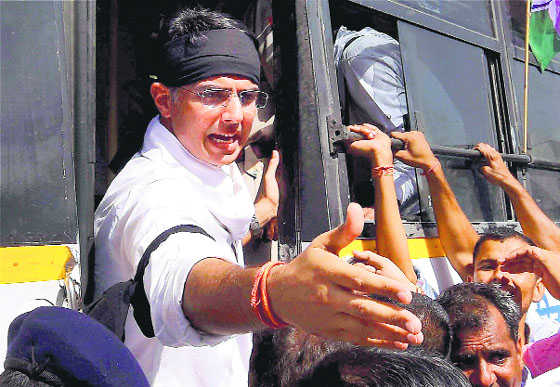
What is worrisome is that the public won’t ever even know of the public officers under a cloud.
Vishvajeet Chaudhary
Rajasthan’s Criminal Laws (Rajasthan) Amendment Ordinance, 2017 is an executive order that essentially states that any criminal investigation against a public officer cannot be initiated without the state government’s permission. It also makes it a criminal offence to report or to name any such officer by the media.
The rationale behind this law is said to be to protect the reputation of officers, and to ensure no frivolous cases are filed against them. The ordinance is however deeply and extensively problematic.
Public officers — both legislative and executive — play a central role in governance. It is paramount that their independence and duty to function without fear or favour is protected. The Code of Criminal Procedure of 1973, which is the key statute governing procedure in criminal cases, keeping this in mind has incorporated Section 197. A magistrate can only take cognisance against a public officer after sanction from the state or central government has been granted if the crime being tried is one that was committed during the course of discharging his or her duties. Similar provisions also extend to army officers and judges. This Section thus limits judicial power to ensure that frivolous cases against public servants do not prevent them from performing their duties.
Some more equal than others
Coupled with independence, it is also essential to place accountability on our public officers. To ensure any kind of faith in the system, keeping reasonable checks and balances is a must. It is in this part that the Ordinance falters.
1 First, the fundamental principle of rule of law is that the law applies equally to everyone. This Ordinance, to some extent, erodes and indents this. It leaves for the possibility of misuse by the state machinery and misuse of it.
2 Second, it can potentially limit access to justice. By adding another requirement before proceeding against public officers, it creates another hurdle and barrier for judicial function to take its course. It also erodes the judicial function as even the courts cannot proceed suo motto.
3 Third, and perhaps most importantly, it limits the freedom of speech. The order makes it a criminal offence, attracting imprisonment of up to two years, in case the identity of public officers in question is revealed. The Supreme Court has on various occasions held that the press enjoys the fundamental right of freedom of speech. This ordinance, to protect the reputation of public officers will trample on that right. What is most worrisome is that the public won’t ever even know of the public officers in question. Thus, the impact of this ordinance will be to limit knowledge of the doings of the public officers.
Freedom pf press curtailed
In our democratic government, it is for the legislative to legislate and frame rules, for the executive to execute these rules and if need be, for the judiciary to adjudicate. Principles of fairness, reasonableness and justice surround them. This ordinance seems to breach them all. The media, sometimes referred to as the ‘fourth’ branch, is also stripped of its function of dispensing information.
It is of course unequivocally important to safeguard the interests and reputation of the public officers, but this also needs to be balanced with the rights of the public. In a very famous English case, the judges remarked ‘Not only must justice be done; it must also be seen to be done.’ This ordinance first creates a hurdle in the act of doing justice by adding the requirement of another layer of permissions. It then creates another hurdle in the act of ‘seeing’ justice by prohibiting dispensing of knowledge by the press.
The writer teaches at OP Jindal Global University, Sonipat



























